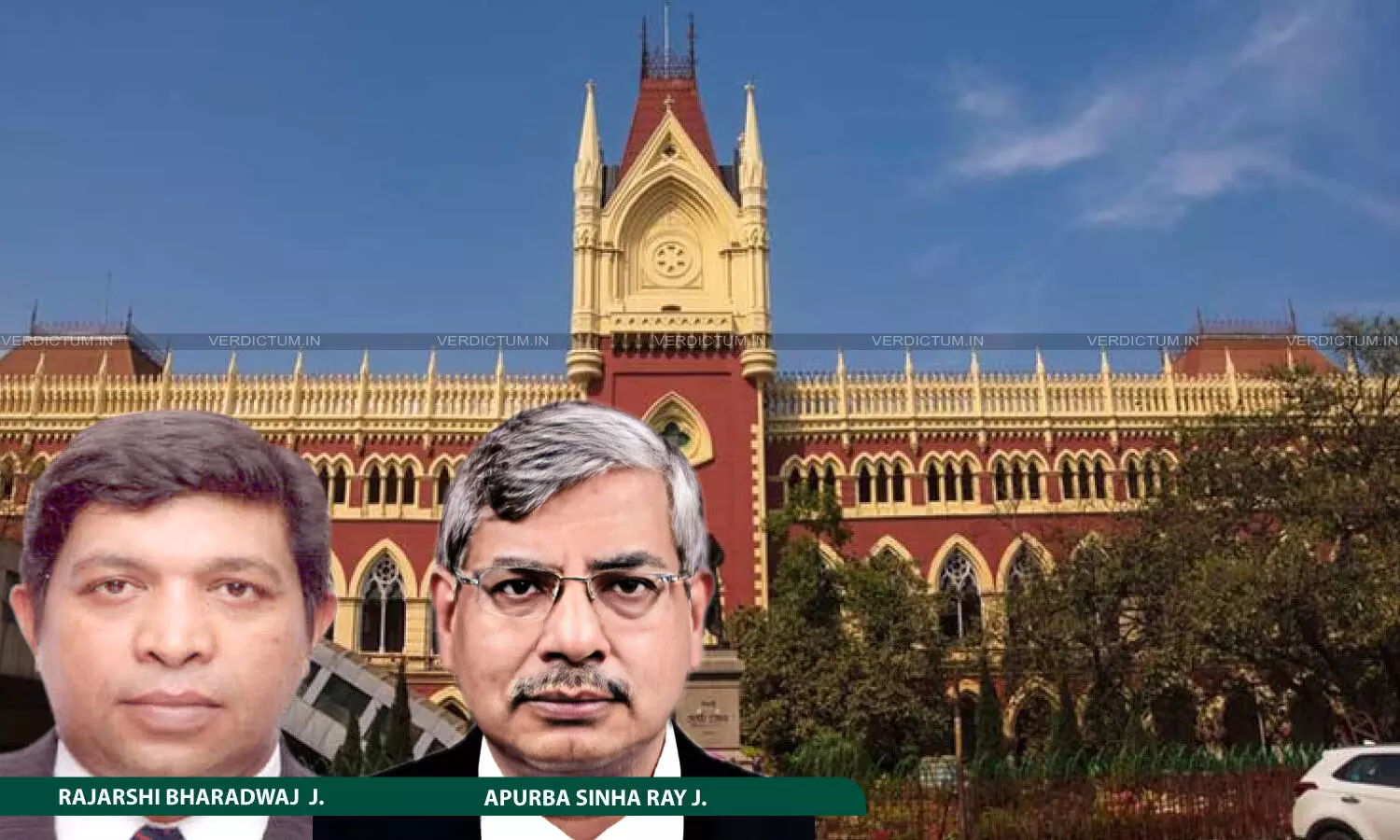
Justice Rajarshi Bharadwaj and Justice Apurba Sinha Ray, Calcutta High Court
No FIR Doesn’t Mean Dowry Allegations Are False, Victims Often Stay Silent To Save Marriage: Calcutta High Court
 |
|The petitioner was convicted for murdering his wife three days after childbirth and subjecting her to cruelty, with no prior FIR for dowry demands.
The Calcutta High Court observed that First Information Reports (FIRs) are often not registered in cases involving dowry demands or dowry-related harassment, primarily due to the desire of the victim or her family to preserve the marital relationship.
The Court was hearing an appeal which had challenged a 2009 trial court verdict that convicted petitioner for murdering his wife and subjecting her to cruelty under Sections 302 (murder) and 498A (cruelty by husband or relatives) of the Indian Penal Code (IPC), as well as for attempting to destroy evidence.
A Division Bench of Justice Rajarshi Bharadwaj and Justice Apurba Sinha Ray said, “It is true that there was no document showing that any complaint was lodged over such demand of dowry from the side of the victim or from her relatives but that does not mean that the claim of the said relatives over these issues are baseless. In our socio-economic condition, it is often found that the demand of dowry, although made from the groom's side, no complaint is lodged only to make an effort for survival of the relationship of husband and wife.”
His wife had died just three days after giving birth to their child. The prosecution established that he physically assaulted his wife punching her repeatedly which led to her death. He then attempted to cremate the body, an act the Court interpreted as an effort to destroy evidence. However, since the cremation was not completed, the Court modified the original conviction for destruction of evidence to a conviction for attempting to destroy evidence.
The defense argued that there were inconsistencies in the prosecution’s narrative and claimed that the woman died after an accidental fall from the bed. However, the Court rejected this argument, citing medical and circumstantial evidence, including visible injury marks on the victim’s body. The Bench emphasized that he was present in the house at the time of the incident and, therefore, bore the burden of explaining how his wife sustained such injuries that led to her death.
Importantly, the Court addressed the issue of dowry harassment. It noted that although there was no formal complaint lodged by the victim or her relatives regarding dowry demands, this absence could not be interpreted as an indication that such demands were non-existent or fabricated.
The Court further remarked on the grave consequences of the crime, noting that by killing his wife, he had also deprived their newborn child of the love, care, and guidance of a mother throughout life.
The High Court upheld the trial court’s verdict convicting him of murder and cruelty, while slightly modifying the conviction related to the destruction of evidence.
Cause Title: Krishna Tewari v. The State of West Bengal